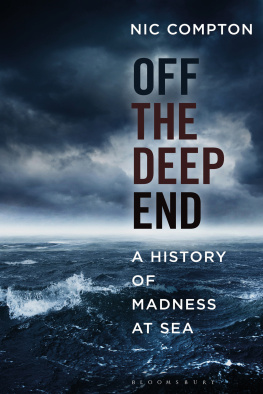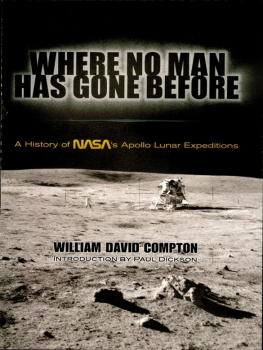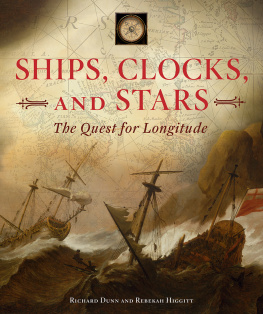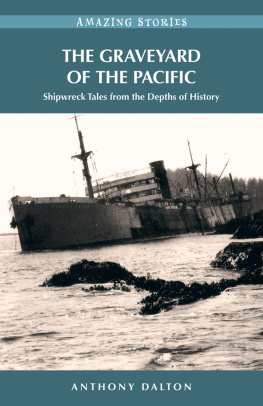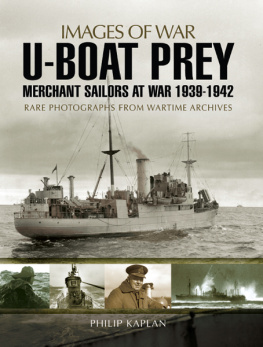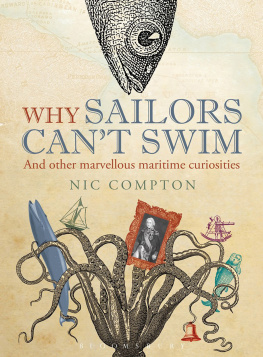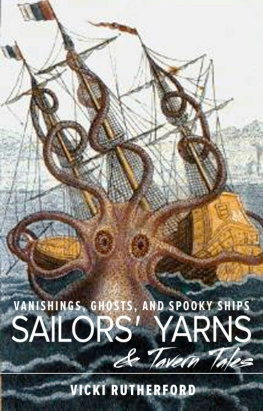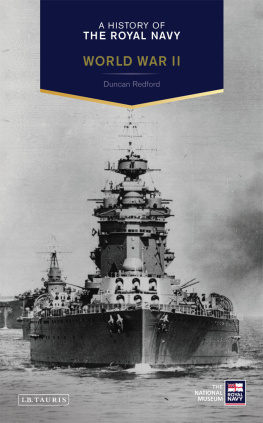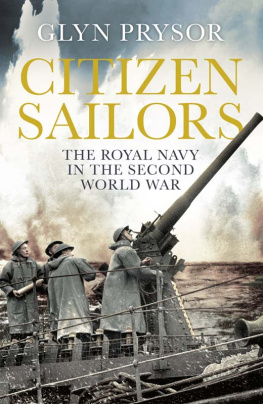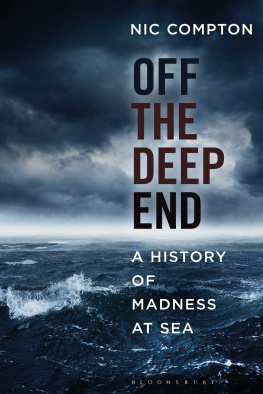
To Anna
who keeps me sane

Contents
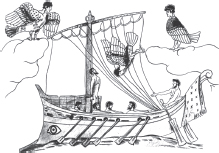
The wonder is always new that any sane man
can be a sailor
Ralph Waldo Emerson
This list refers to the illustrations in the plate section.
Flying Dutchman , Albert Pinkham Ryder, 1887
frontispiece from The Voyage of the Beagle by Charles Darwin, 1890
The Mutineers turning Lieut Bligh and part of the officers and crew adrift from His Majestys ship the Bounty , Robert Dodd, 1790
Critical position of HMS Investigator on the north coast of Baring Island , engraving by William Simpson, original by Lieutenant SG Cresswell, 1854
Christopher Columbus , by Sebastian del Piombo, 1519
Vice Admiral Robert FitzRoy (180565), Samuel Lane
Naval Hospital, Haslar, near Portsmouth: view from right , coloured aquatint with etching by J Wells, 1799, after J Hall, 1799
William Norris confined in Bethlem Hospital for 12 years , from etching by G Cruikshank, circa 1820 after drawing from life by G Arnald, 1814
The Raft of the Medusa , by Thodore Gricault, 1819
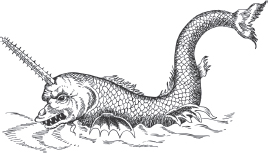
Alexandria, 14 December 1941
On a moonless night, 56 kilometres (35 miles) north-west of Alexandria, my father is swimming for his life. The sea around him is pitch black but he can just make out the shape of various bits of ships detritus and several dead bodies, covered in oil slick. Around him he can hear the cries of men injured in the carnage, though whenever he tries to swim towards them, the sound vanishes into the darkness. Eventually, the lights of a ship appear over the horizon and, as the vessels white ensign looms into view, he realises rescue is at hand.
Lt Cmdr Charles Compton, to give him his full title, was serving on HMS Galatea , patrolling the north coast of Africa, when the 5,200-ton light cruiser was torpedoed by a German U-boat. The ship took just three minutes to sink six times faster than the Lusitania giving its crew almost no time to evacuate. Luckily for him, my father was in the bridge at the time and was able to scramble out and jump into the sea. The men working or sleeping deep in the bowels of the ship didnt stand a chance: those not killed by the explosions were trapped in the steel hull and drowned.
A total of 469 British sailors died off Alexandria that night: 447 ratings, 21 officers and the ships commander, Captain EWB Sim. About 100 men ended up in the sea and were rescued by two British warships that were in the area they were the lucky ones.
My father was doubly lucky. After being treated at a hospital in Alexandria, he was evacuated to Cape Town and then to London, where he became naval advisor on the Nol Coward film In Which We Serve . He never saw active service again, but instead was posted to the Foreign Office in London, and at wars end was transferred to the British embassy in Havana. He went on to enjoy a few years leading the high life in Hollywood, dining with Grace Kelly, dancing with Jackie Bouvier and having Christmases with the Kennedy family. For a couple of glorious summers, he hung out in Florida and went partying with JFK, long before the latter launched his presidential campaign.
Despite this, the events of that night in December 1941 would remain with him for the rest of his life. Years later, when I asked him about his wartime experiences, he described the excitement of setting off on his previous ship, HMS Bulldog , under the command of John Woozy Wisden, who liked to crack open a bottle of champagne as they headed out to sea, and of dodging German bombers in the Channel thanks to a sudden fog.
However, when it came to talking about HMS Galatea he grew uncomfortable. He described the death of so many of his friends and colleagues, and his feelings of guilt that he and his fellow officers had not been able to save their ship that they had somehow failed the rest of the crew. But quite quickly, he clammed up, and I realised it was time to change the subject. I later discovered that, even into his mid-nineties, he would sometimes wake up at night, shouting, apparently reliving the horrors of his wartime experiences of 70 years before.
Nowadays, like thousands of other survivors of war trauma, my father would probably be treated for post-traumatic stress disorder (PTSD), but in those days you were more likely to be given a slap on the back and told to get on with it stiff upper lip, and all that. Like most men of his generation, he carried the psychological scars of his wartime experiences to his grave.
* * *
Madness at sea is a largely hidden, unreported phenomenon. This is partly because, by definition, it takes place in an alien environment, away from societys gaze, and only the most dramatic examples make the news. Many people have heard of Donald Crowhurst, the singlehanded sailor who became delusional and jumped over the side after faking his position in a round-the-world race, but few know about the dozens of merchant seaman lost at sea every year without explanation, half of whose deaths are thought to be suicides.
Its also a little-discussed subject because of the more general stigma attached to mental illness. Most people are quite happy to talk about their physical injuries in great detail, but rather more squeamish when something similar happens to their brain. Nowhere is this more the case than in the macho environment of a ship. Seamen are supposed to be tough, and it doesnt do to show any form of weakness at sea physical or otherwise. Theyre typically a superstitious lot too, and in the past it was considered unlucky to have a madman on board in the same way that it was unlucky to have a woman or a pig or a dead body on board. A sailor showing signs of mental illness was more likely to be thrown over the side than given a course of counselling.
Yet there are many reasons why seamen might be more-than-usually susceptible to mental illness. First, theres the physical environment. Living in a confined space with your fellow sailors for weeks or months on end with no chance of escape is likely to test the most acquiescent soul. And they certainly packed them in: 460 men slept in the lower gun deck of HMS Victory , their hammocks slung just 40cm (16in) apart, head to tail. Its not much better in a modern yacht, with the living space of some vessels taking part in one major round-the-world race calculated as being half the size stipulated by the EU as the lower limit for a multi-occupancy prison cell.
Then theres the stress of travelling to unknown lands, far away from family and friends, facing unpredictable hazards, with no support mechanism other than your fellow crewmates. If youre bonded within the group, then youll do fine, but if youre on the periphery, then things are only going to get worse much worse. Even on a huge cruise ship packed with 3,000 or more passengers, its possible to feel claustrophobic, lonely and isolated as testified by the hundreds of suicides on ocean liners.
As if that werent enough, the sea has its very own smorgasbord of special, ocean-borne illnesses, guaranteed to eat away at your sanity. Top of the list during the Age of Sail was scurvy, which, in addition to horrendous physical symptoms, was often accompanied by extreme hypersensitivity, such that the scent of flowers could prove agonisingly painful and the sound of gunshot could kill a man. Then there was calenture, a type of heat stroke that turned men delirious and compelled them to jump over the side, usually to their deaths. Even today, many crews are affected by a modern version of calenture, which is thought to account for hundreds of cases of people unaccountably lost at sea including, possibly, media tycoon Robert Maxwell.

